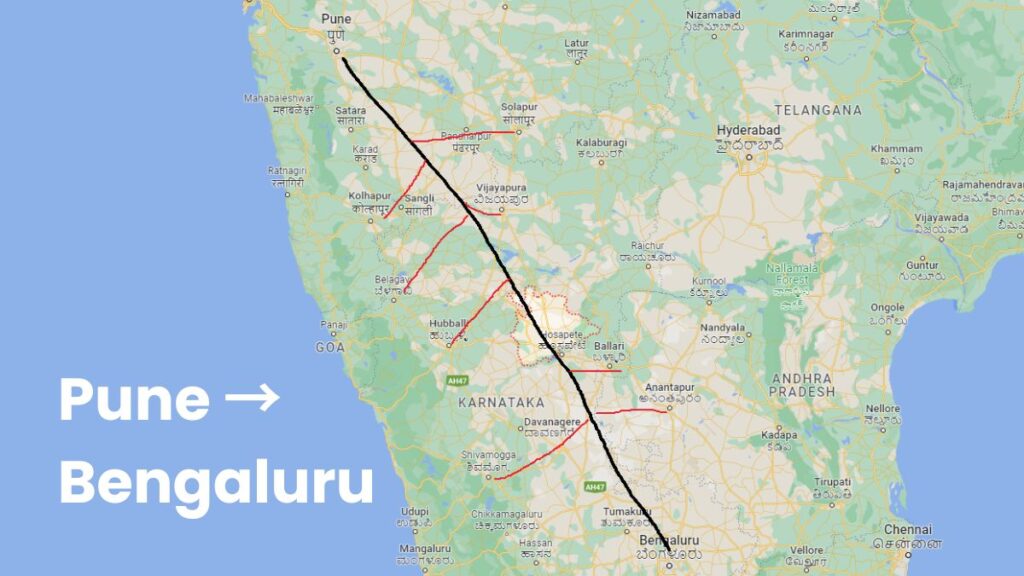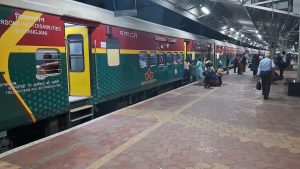Pune-Bengaluru Expressway Likely to Open by 2028, Slashing Travel Time by 50%

In a major infrastructure boost, the Pune-Bengaluru Expressway, a ₹50,000-crore mega-project, is set to revolutionize travel between Maharashtra and Karnataka. Slated for completion by 2028, this 700-km high-speed corridor will cut travel time between the two cities from 14-15 hours to just 6-7 hours, marking a 50% reduction.
Key Features of the Pune-Bengaluru Expressway
1. Cost & Length
- Budget: ₹50,000 crore
- Length: 700 km (reducing the current distance by 95 km)
- Speed Limit: 120 km/h, ensuring faster and smoother commutes
2. Route & Connectivity
The expressway will traverse 12 districts across two states:
- Maharashtra: Starts at Kanjle, passing through Pune, Satara, and Sangli
- Karnataka: Begins at Bommanal, covering Belagavi, Jamakhandi, Badami, Bagalkot, Gadag, Koppal, Chitradurga, Vijayanagara, Davangere, and Tumakuru
3. Travel Time Reduction
Currently, the Pune-Bengaluru road trip takes 14-15 hours. With the new expressway, commuters will reach in just 6-7 hours, making business and leisure travel far more efficient.
4. Project Timeline
- 2022: Proposed under Bharatmala Pariyojana Phase 2
- Feb 2025: Detailed Project Report (DPR) submitted and approved by Maharashtra & Karnataka governments
- Mid-2025: Central Government approval secured
- 2028: Expected inauguration
5. Advanced Features & Environmental Considerations
- Six-lane, access-controlled expressway with smart tolling, AI-based planning, and drone mapping
- Wildlife passages near forested zones to minimize ecological impact
- Integrated into India’s longest expressway spine (Delhi-Mumbai-Bengaluru-Chennai corridor)
- Smart features: Electronic speed monitoring, CCTV surveillance, emergency response systems
6. Economic & Real Estate Impact
- Expected to boost industrial growth along the route
- Land prices likely to rise in Satara, Sangli, and Tumakuru
- Multiple entry-exit ramps for seamless connectivity
Conclusion
The Pune-Bengaluru Expressway is a game-changer for South India’s infrastructure, promising faster travel, economic growth, and smarter highways. With 2028 as the target completion date, commuters and businesses alike can look forward to a new era of connectivity.









